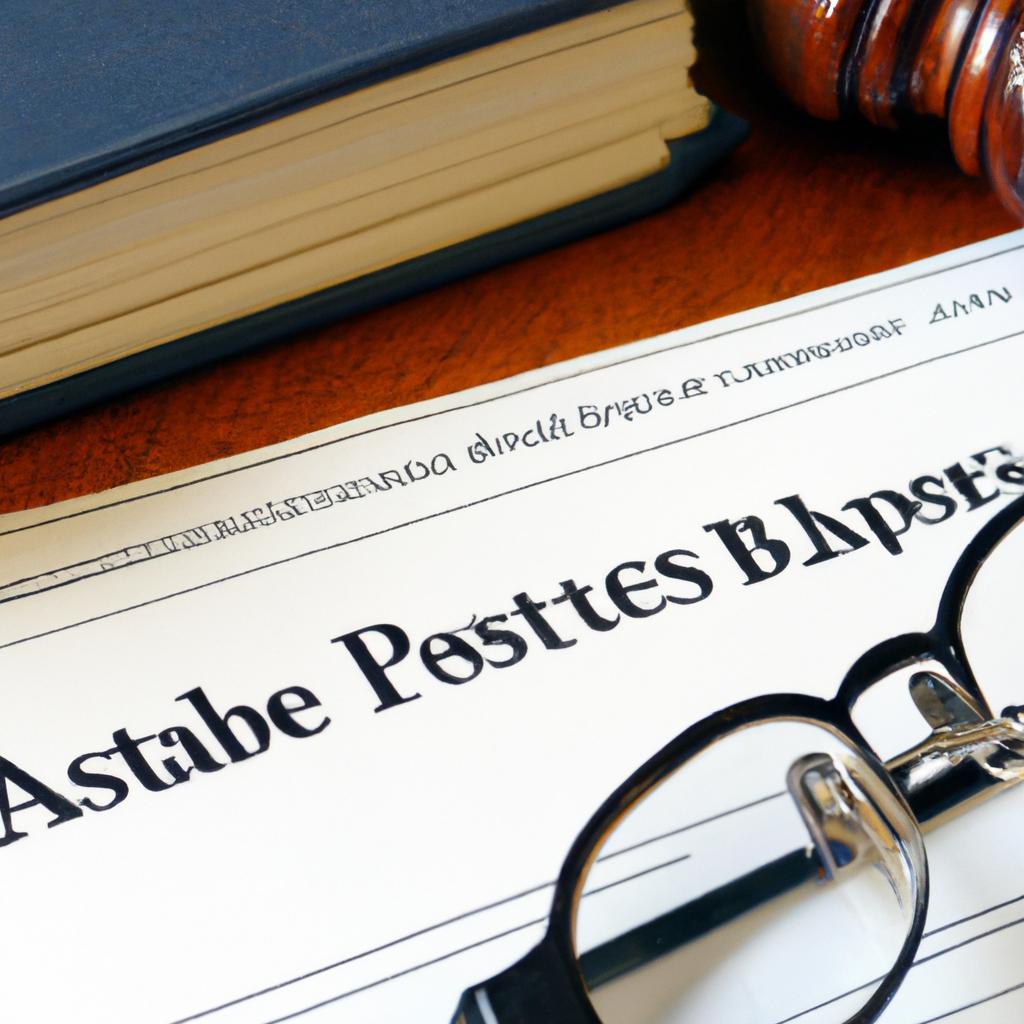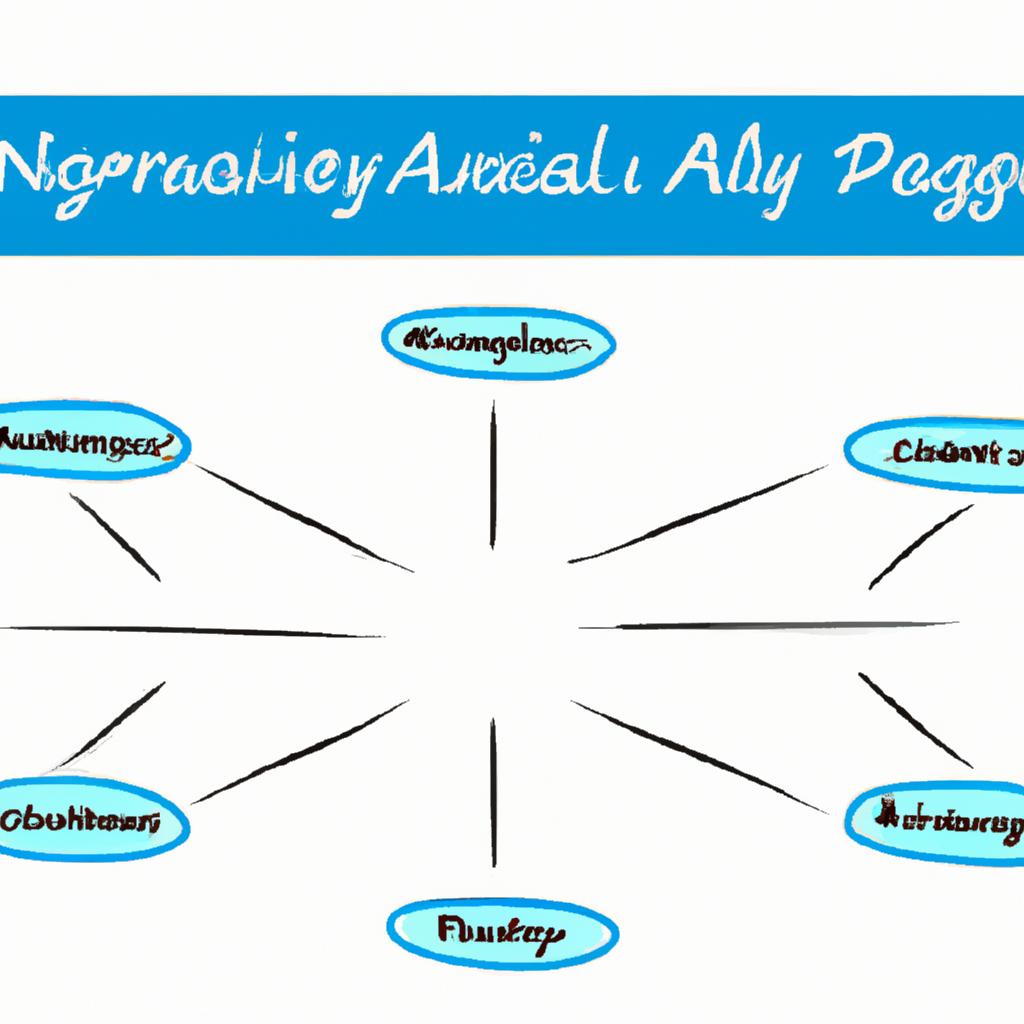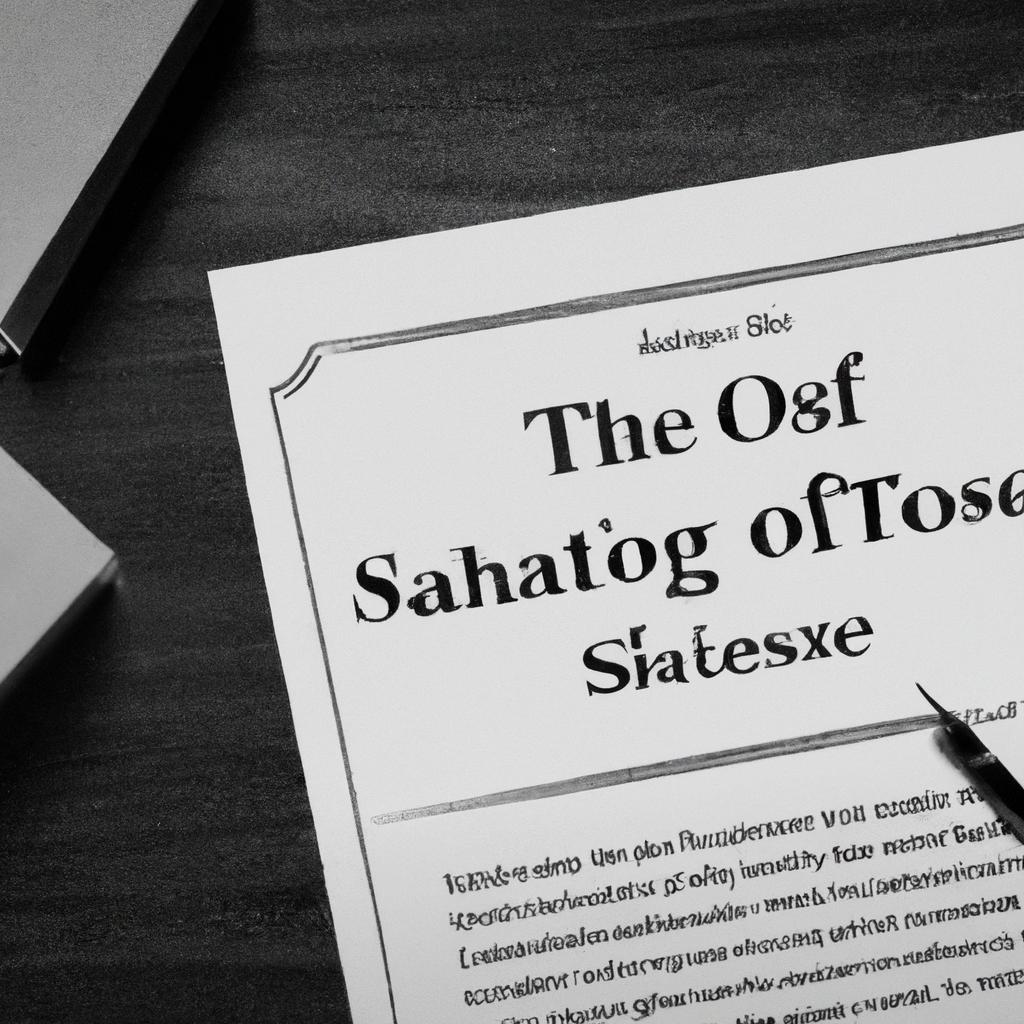In the intricate world of estate planning and probate, one term that often elicits confusion and concern is ”assets subject to probate.” Understanding the implications of this concept is essential for individuals seeking to secure their financial legacies and ensure the smooth transfer of their assets to their loved ones. Here at Morgan Legal Group in the heart of New York City, our team of experienced lawyers specializes in navigating the complexities of estate planning, probate, elder law, Wills, and trusts. Join us as we delve into the nuances of assets subject to probate and unravel the key considerations that individuals should be mindful of in safeguarding their estate.
Assets Subject to Probate: Understanding the Basics
When it comes to the probate process, it is crucial to understand which assets are subject to probate. These assets are typically required to go through the court-supervised process of probate in order to be transferred to the beneficiaries or heirs. Understanding the basics of assets subject to probate is essential for effective estate planning and ensuring a smooth probate process.
Assets that are subject to probate include:
- Real estate solely owned by the deceased
- Bank accounts solely owned by the deceased
- Investment accounts solely owned by the deceased
| Asset Type | Probate Requirement |
|---|---|
| Real Estate | Must go through probate if solely owned |
| Bank Accounts | Subject to probate if solely owned |
| Investment Accounts | Probate required if solely owned |

Navigating Complex Assets: Real Estate and Business Interests
When it comes to navigating complex assets such as real estate and business interests, it is important to understand how these assets may be subject to probate. Probate is the legal process of validating a deceased individual’s will and distributing their assets according to the terms of the will or state law. Real estate and business interests are common assets that may be subject to probate, which can be a lengthy and costly process for heirs and beneficiaries.
Assets subject to probate, such as real estate and business interests, may be subject to potential challenges and disputes during the probate process. It is important for individuals to work with experienced estate planning attorneys to create a comprehensive estate plan that includes strategies to avoid probate for these complex assets. By utilizing tools such as trusts, joint ownership, and beneficiary designations, individuals can ensure that their real estate and business interests are transferred smoothly to their heirs and beneficiaries without the need for probate.

Protecting Your Loved Ones: Strategies for Minimizing Probate Expenses
When it comes to minimizing probate expenses and protecting your loved ones, understanding which assets are subject to probate is crucial. Probate can be a lengthy and costly process, but with the right strategies in place, you can ensure that your assets are distributed efficiently and effectively. Here are some key assets that are subject to probate:
- Real estate: Any property that is solely owned by the deceased individual will likely be subject to probate. This includes houses, land, and other real estate assets.
- Bank accounts: Individual bank accounts that do not have a designated beneficiary or are not held jointly with rights of survivorship will typically be subject to probate.
- Investment accounts: Stocks, bonds, and other investment assets held solely in the deceased person’s name may need to go through the probate process.
| Asset Category | Probate Status |
|---|---|
| Real Estate | Subject to Probate |
| Bank accounts | Subject to Probate |
| Investment accounts | Subject to Probate |
By taking the time to review your assets and understand which ones are subject to probate, you can work with an experienced estate planning attorney to develop a plan that protects your loved ones and minimizes probate expenses. With the right strategies in place, you can ensure that your assets are distributed according to your wishes without unnecessary delay or cost.

Ensuring a Smooth Transition: Properly Structuring Your Estate Assets
Probate can be a time-consuming and costly process, so it is essential to understand which assets are subject to probate and how to properly structure your estate to avoid it. Assets subject to probate include:
- Real estate held solely in your name
- Bank accounts held solely in your name
- Investment accounts held solely in your name
- Personal property such as jewelry, artwork, and vehicles
To ensure a smooth transition of your estate assets, it is crucial to consider strategies such as creating a living trust, designating beneficiaries on retirement accounts and life insurance policies, and titling assets jointly with rights of survivorship. By properly structuring your estate, you can minimize the impact of probate and make the process easier for your loved ones. Consider consulting with an estate planning attorney to discuss the best options for your unique situation.
| Asset | Probate Status |
|---|---|
| Real Estate in Trust | Non-probate |
| Bank Account with POD Designation | Non-probate |
| Investment Account with Transfer on Death | Non-probate |
| Jointly Owned Property with Right of Survivorship | Non-probate |
Q&A
Q: What are assets subject to probate?
A: Assets subject to probate are those that must go through the legal process of probate upon someone’s death in order to be transferred to beneficiaries.
Q: What are some examples of assets subject to probate?
A: Examples of assets subject to probate include real estate, vehicles, bank accounts, investments, and personal belongings that are solely owned by the deceased.
Q: Why is it important to understand which assets are subject to probate?
A: Understanding which assets are subject to probate is important because it can impact the estate planning process, the time it takes for beneficiaries to receive their inheritance, and the costs associated with administering the estate.
Q: How can one avoid assets being subject to probate?
A: Assets can be structured in a way to avoid probate, such as by creating a living trust, designating beneficiaries on accounts, and titling assets jointly with rights of survivorship.
Q: Are there any disadvantages to assets being subject to probate?
A: Assets subject to probate can be subject to delays, legal fees, and potential challenges from creditors or disgruntled family members, making it a less desirable option for estate planning.
Wrapping Up
As we navigate the complicated waters of estate planning, understanding which assets are subject to probate is crucial. By taking the time to carefully designate beneficiaries and assess the probate implications of our possessions, we can ensure that our loved ones are provided for and our wishes are carried out. Remember, seeking the advice of a knowledgeable estate planning attorney can help make this process smoother and more efficient. So, take control of your assets and plan for the future today.
 Assets Subject to Probate: Understanding the Process and Protecting Your Loved Ones’ Inheritance
Assets Subject to Probate: Understanding the Process and Protecting Your Loved Ones’ Inheritance
Losing a loved one is a difficult and emotional experience, and unfortunately, the practical matters of managing their assets and estate must also be addressed. This process is known as probate and it involves identifying, valuing, and distributing a person’s assets after they pass away.
Probate can be a lengthy and complex process, and understanding which assets are subject to it is crucial. In this article, we will dive into the concept of assets subject to probate, why they are important, and how you can protect your loved ones’ inheritance through proper planning.
What Are Assets Subject to Probate?
In simple terms, assets subject to probate are assets that need to go through the court-supervised process of probate after the owner passes away. These assets are typically titled solely in the name of the deceased person and do not have a designated beneficiary or joint owner.
Examples of assets subject to probate include:
– Real estate solely owned by the deceased person
– Bank accounts or investments solely in the deceased person’s name
– Personal property, such as jewelry and furniture, solely owned by the deceased person
– Intellectual property solely owned by the deceased person
– Business interests solely owned by the deceased person
– Life insurance policies that do not have a designated beneficiary
– Retirement accounts that do not have a designated beneficiary or are not held jointly with a surviving spouse
Why Are Assets Subject to Probate Important?
The probate process is designed to ensure that a deceased person’s assets are distributed in accordance with their wishes, or if they did not have a will, according to state laws. However, probate can also be a costly, time-consuming, and public process.
Firstly, the court fees and attorney fees associated with probate can significantly reduce the value of the assets being distributed. These fees are typically based on a percentage of the total assets being probated, and they can add up quickly.
Secondly, probate can take months or even years to complete, depending on the complexity of the estate and any potential challenges or disputes. During this time, the assets subject to probate are essentially frozen, and beneficiaries will not have access to them.
Additionally, probate is a public process, which means anyone can access the details of the deceased person’s estate. This lack of privacy can be a concern for many families, especially if there are sensitive or valuable assets involved.
How Can You Protect Your Loved Ones’ Inheritance?
The good news is that with proper planning, you can reduce the number of assets subject to probate and protect your loved ones’ inheritance. Here are a few strategies to consider:
1. Create a Revocable Living Trust
One of the most effective ways to reduce the assets subject to probate is to create a revocable living trust. This legal document allows you to transfer assets, such as real estate, bank accounts, and investments, into a trust while you are still alive. Upon your death, the assets in the trust will be distributed to your beneficiaries according to your instructions, without going through probate.
A revocable living trust also offers the benefit of privacy, as the details of the estate do not have to go through the public probate process.
2. Designate Beneficiaries and Joint Owners
Another way to avoid probate is by designating beneficiaries and joint owners for assets such as life insurance policies, retirement accounts, and bank accounts. These assets will transfer directly to the designated person upon your death, without going through probate.
It’s essential to regularly review and update beneficiary designations, especially after significant life events like marriage, divorce, or the birth of a child. This will ensure that your assets are distributed according to your wishes.
3. Consider Gifting Assets During Your Lifetime
Gift-giving can be a wonderful way to help your loved ones while they are still alive and can also reduce the assets subject to probate. However, it’s essential to consider the possible tax implications of gifting assets, and it’s recommended to seek the advice of a financial advisor or estate planning attorney before making any significant gifts.
Practical Tips for Managing Assets Subject to Probate
In addition to the strategies mentioned above, here are a few practical tips to keep in mind when handling assets subject to probate:
– Keep detailed records of all assets, including account numbers and property titles.
– Regularly review and update your estate plan, especially if your financial or personal circumstances change.
– Consider pre-planning your funeral and making your wishes known to your loved ones to avoid potential disputes.
– When possible, try to simplify your estate by consolidating assets or using joint ownership.
– Seek the advice of a qualified and experienced estate planning attorney to ensure that your assets are distributed efficiently and effectively.
In conclusion, understanding assets subject to probate is crucial for protecting your loved ones’ inheritance and ensuring that your estate is handled according to your wishes. By taking proactive steps and seeking professional guidance, you can make the probate process smoother and less stressful for your family during a difficult time. Remember, the best way to ensure your assets are distributed as you intend is to have a well-crafted estate plan in place.

